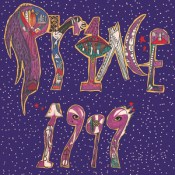 Written by Brett Duncan. Brett is a “transitionist” who specializes in helping direct selling companies as they transition into the new era of direct selling. He is co-founder and managing partner of Strategic Choice Partners, a business development firm that helps direct selling companies take their next steps.
Written by Brett Duncan. Brett is a “transitionist” who specializes in helping direct selling companies as they transition into the new era of direct selling. He is co-founder and managing partner of Strategic Choice Partners, a business development firm that helps direct selling companies take their next steps.
We’re Still Partying Like It’s 1999
I’m a huge Prince fan.
Not Harry or William. I’m talking the artist originally known as, then formally known as, then finally once again known as… Prince.
I loved him when I heard “When Doves Cry” for the first time when I was 7 years old, and I’ve loved him through every year since. Two of the best five concerts I’ve ever seen were of Prince.
Whether you love him or hate him yourself, it’s hard for me to imagine you’re not aware of who he is and many of his songs. And one of those unavoidable songs is no doubt “1999”, Prince’s poppy ode to the then-oncoming millennium.
he is and many of his songs. And one of those unavoidable songs is no doubt “1999”, Prince’s poppy ode to the then-oncoming millennium.
“2000-00, party overOops, out of timeSo tonight I’m gonna party like it’s 1999”
Even Prince knew 1999 couldn’t last forever. That something was gonna change, so might as well party now before we have to worry about it.
Prince has inspired my article with a message especially for party plan companies in direct selling today. Because while Prince has moved on, I fear too many of us have refused to. Too many of us are still partying like it’s 1999.
I Love a Good Party
I need to make something very clear here at the onset, and it will keep coming up throughout my article: I love party plan companies. Prior to consulting, I did not spend my career in party plan, so it was unfamiliar terrain for me. But well over half of my clients have been in the party plan space, so I caught up quickly, and I’ve developed a real love for what party plan companies are about. They’re just fun, and energetic, and I think, as a general rule, that they’re more open to evolving in direct selling than their counterparts.
And, I do love parties. Or shows, gatherings, tastings, trunk shows, demonstrations or whatever other name you may have for them. I think demonstrations are absolutely vital for so many product types in our space. And I think the community and spirit of parties are beyond fun.
I love parties as an event; I just can’t stand them as an order type. And that’s what we need to address.
Keep the Party, Lose the Order Type
There are some clear obstacles to what we’ve included in the “party plan” bucket in terms of philosophical/marketplace concerns, and we’ll get to those, but I think the real issues with a traditional party plan model in the modern world has more to do with functional issues. And two things are at the heart of the cause: Order submissions and host programs.

Let’s start with order submissions… When I say “I love parties as an event, just not as an order type,” I typically tell a story to make my point.
The first network marketing company I worked for in my career was great in so many ways. They were a nutritional MLM that launched in the mid-nineties. They did OK for a bit, but they really took off when the women started holding what they called “mixers.” These mixers were nothing more than a home party, where people could try different products and learn about them in person. The company took off, and the rest is history.
Did these ladies have a great host program to tap into? Nope! It was a traditional MLM company – they don’t do those sorts of things. I’m sure they got creative on their own with promos and specials, but that’s kinda the point: on their own, these women realized that sharing these products in a social setting was a great way to sell them, and that in and of itself was reward enough to do it. They didn’t need extra perks to want to do that.
I still think this is true. I know home shows don’t happen anywhere near as often as they used to, but all of the data I see tells me that, when they do happen, they’re still really, REALLY good in terms of customer acquisition and sales revenue. And, if COVID taught us anything, it taught us that online “shows” and demonstrations can work, and I don’t see that going anywhere.
The challenge with “shows” is that they just don’t happen as often as they used to, no matter how much we try to convince the world that they should.
A lot has led to that: Schedules, society in general, an explosion of shopping options. But obviously the Internet and ecommerce are at the center of a lot of the shifts that party plan companies had to take on starting in the early 2000s.
I’d be remiss if I didn’t also point out how the pandemic impacted not just direct selling in general, but party plan companies more specifically. Many party plan companies went from barely making it to hyper-growth over 2020 to 2021, only to come sliding back down rather quickly in 2022. Other party plan companies struggled just to keep up during the pandemic, and are still finding their footing. Of course, there are some companies who are doing just fine.
Many have called the pandemic the “Great Accelerator,” and I like that description. The trends we embraced weren’t necessarily new concepts to us; we’d been talking about them for years. But we were in a position where we had to commit to them, or die. We certainly saw the acceleration of live-streaming, online parties and social selling techniques over 2020 and 2021. But I don’t think the core opportunities I’m discussing in this article were created by that era. I think party plan companies were already on the path of evolution; the pandemic simply accelerated the progress.
Unintended Consequences
In response to all these changes, a lot of trends popped up in the party plan world. The motives behind them were all good and right. But the unintended consequences have been vast and problematic:
Self-Hosting: Self-hosted shows are pretty much the standard now, where Consultants themselves are able to stock up on the perks of the host program by hosting shows on their own. It’s not wrong or bad at all, and pretty much inevitable. But it’s not why your host program was created.
Order Gathering: If there’s one thing Consultants are amazing at, it’s figuring out the best way to milk any program for every possible discount, even if it hurts their own commissions. That’s admirable, actually. But in the spirit of doing that, the trend now is that Consultants simply open “shows” and collect orders from customers all together at once to tap into the host perks, even though there was never really a show or a true host. It’s not bad or wrong, but it’s not why your host program was created.
Shows That Never “Close:” In response to all the different ways that the host program and shows are being used outside of a traditional host, companies have gotten more open to allowing Shows to stay open indefinitely, or at least for months at a time. Online shopping before, during and after the party has warranted this, to a certain degree, but these never-ending orders have led to even more iterations of what a “party” actually is these days. And, it’s not why your host program was created.
Quasi-Customer Rewards Programs: The most creative Consultants figure out how to turn the company’s host program into a Customer Rewards Program. Many will open a “show” for every Customer, allowing for them to just collect their host perks over time (since they never close). It’s not a host program at this point, it’s a customer rewards program. Which is a great idea! But it’s not why your host program was created.
What’s the Purpose of a Host Program?
 So why was a host program created? In its purest and most original form, a host program was created to allow customers (not Consultants) to invite friends and family for a show (traditionally, at their home). In exchange for that, they got to tap into all kinds of perks and discounts.
So why was a host program created? In its purest and most original form, a host program was created to allow customers (not Consultants) to invite friends and family for a show (traditionally, at their home). In exchange for that, they got to tap into all kinds of perks and discounts.
Sounds like a really amazing referral program to me!
When done this way, Host Programs make a ton of financial sense. Get your best customers to help spread the word and take on a lot of the heavy lifting of customer acquisition. It’s worth it!
And that’s exactly what a host program is intended to be. And the standard form of a host program (which gives discounts, free items and special access to hosts where Customers buys $200, $300, $400, etc., in a show) hasn’t really changed that much in over 30 years.
Even though everything around it, and everyone using it has pretty much changed in how they use it.
Now, let me say this again: I love parties, and party plan companies ;-). And I know that there are still genuine shows with Customer Hosts happening. And I think that’s great, and you should still make that a possibility for anyone who wants to do it. I’m a big believer in allowing anyone who wants to sell my products in any way, as long as it’s legal and compliant.
But for every company I’ve talked to who shows me that they have even 50% of their “shows” in a traditional sense, I meet five where the vast majority (70%+) of their “shows” actually fall into a self-hosted or order collection scenario.
And most of these companies all share the same sentiment: “I don’t mind investing in my host program; I just want to make sure that investment is going toward true incremental revenue.”
So the real proposition for party plan companies is in finding the best way to leverage the investment they’re making in their host program.
3 Core Challenges
I think there are three fundamental areas where applying a traditional host program in today’s direct selling environment are a real challenge. I’m sure there are more, but I think coming to grips with these alone should be enough to get serious about rethinking how you do host perks:
Technical Challenges: Every direct selling company is going to run into technical challenges, but it is extremely common in the party plan space for companies to be held back due to either technical issues with incorporating new ecommerce technologies to account for show orders and host perks, or due to their allegiance to their current system and processes because of their show orders and host perks that system supports. This isn’t a knock on the software providers in our space; they do great work here. It has more to do with recognizing that so many companies feel stuck in their capabilities because of one or two aspects of their business model.
Anytime you’re a slave to the system, you have an opportunity to rethink the path forward.
Financial Challenges: Party Plan companies spend a lot on host perks and maintaining show orders. Most host programs offer 15 – 30% in free products and other discounts alone. When that 15-30% is going to Consultants self-hosting, or to collections of orders that would have typically just come through as a retail order on your website, there’s a lot of payout and double-dipping that’s happening that can suck up the margin you thought you’d generate.

On top of that, there’s typically quite a bit of cost in maintaining and updating the systems and integrations to keep the program running.
Anything you sink more than 1% of total sales into regularly be looked at, optimized, refined and updated regularly to make sure that investment is well placed.
Customer Experience Challenges: The curse of knowledge is a real thing, and when it comes to our host programs, our Consultants certainly suffer from it. I’ve seen so many times where a Customer expresses that they’re ready to buy a product from the website directly (through their Consultant), but the Consultant will actually stop them, reroute them, ask them to click on a show link instead, enter their order there, and then explain some creative way the Consultant is going to leverage the perks for them, or a larger group.
It all makes total sense to the Consultant; it normally leaves the Customer’s head spinning.
I don’t consider myself an ecommerce expert, but when someone is ready to buy something, I’m pretty sure it’s not good practice to get in their way.
If there’s a part of your selling process that actually discourages Customers from buying when they want to buy, you need to rethink it.
So What’s the Solution?
Well, first let me remind you that I love party plan companies. 😉
I also recognize how vital the “party” has been for so many companies in developing their overall culture (especially 15+ year-old companies). And no one wants to lose or threaten that.
But if you find yourself using parties and shows in ways they were never intended to be used, and paying host perks in ways you never expected (or accounted for), and having to explain why ordering through your company has to be done a certain way, I think it’s fairly clear that you need to reconsider some things.
I believe every company has a unique answer, so I won’t pretend to know what yours is. But here are some places to consider as a start:
1. Don’t discourage people from having shows (whatever that means): Demonstrating your products is always a good thing. Allow for it and facilitate it. Livestream it and all that good stuff. But…
2. Don’t require shows: So many party plan companies base recognition and even commission bonuses off of sales through shows. That used to make a lot of sense, but now, given all the reasons we’ve talked about above, you’re really just requiring Consultants to cram orders into shows that otherwise wouldn’t have done it, just to maximize the perks. Reward sales, regardless of how they come in. Many of your Consultants will choose to sell through shows, because that’s just a good way to share products!
3. Build around what you want (not what you have): In my experience, most party plan companies struggling to figure out where they belong in the modern social selling environment work too hard to try to figure out how to make parties work in this new world, instead of trying to figure out what it is they could truly offer in terms of Customer Rewards and Referrals. We love what true hosts do; let’s figure out a way to continue to reward them for their “super referrals” still but come up with a program to do it that isn’t so exposed to all of the challenges we’ve talked about. I have some ideas on that …
4. Ask one very important question: “If we were launching our company today, how would we do it?” Think about accomplishing whatever it is you want to accomplish, and think through what the best way to do that would be if you launched today. Once you have an idea of what that is, starting figuring out a path to get from here to there.
5. Remember your identity: You’re a great brand who has used the party plan model/direct selling space as a method of distribution, etc. Yes, it’s very, VERY easy to take that on as your identity. “We’re a party plan company.” But that’s not really true; you’re a lot more than that. Stick to the absolute core of your vision, and be open to updating and changing absolutely everything else.
I love party plan companies. But I feel like we’ve allowed the party to dictate way more about what we do and what we’re capable of becoming than it’s supposed to. At the end of the day, we must focus more on how customers want to buy than on how we want to sell.
We don’t need to toss out the spirit behind parties, or even host program. But we do need to completely rethink how we accommodate it.
Prince was always ahead of his time. He predicted a scary amount of what was going to happen in the music industry way before anyone else. He actually had his own personal iTunes service several years before there was an iTunes. And, he released “1999” in 1983! Prince knew things were changing, regardless of what he thought about it.
We need to keep partying, but we can’t afford to still party like it’s 1999.
SHARE THIS ARTICLE:
